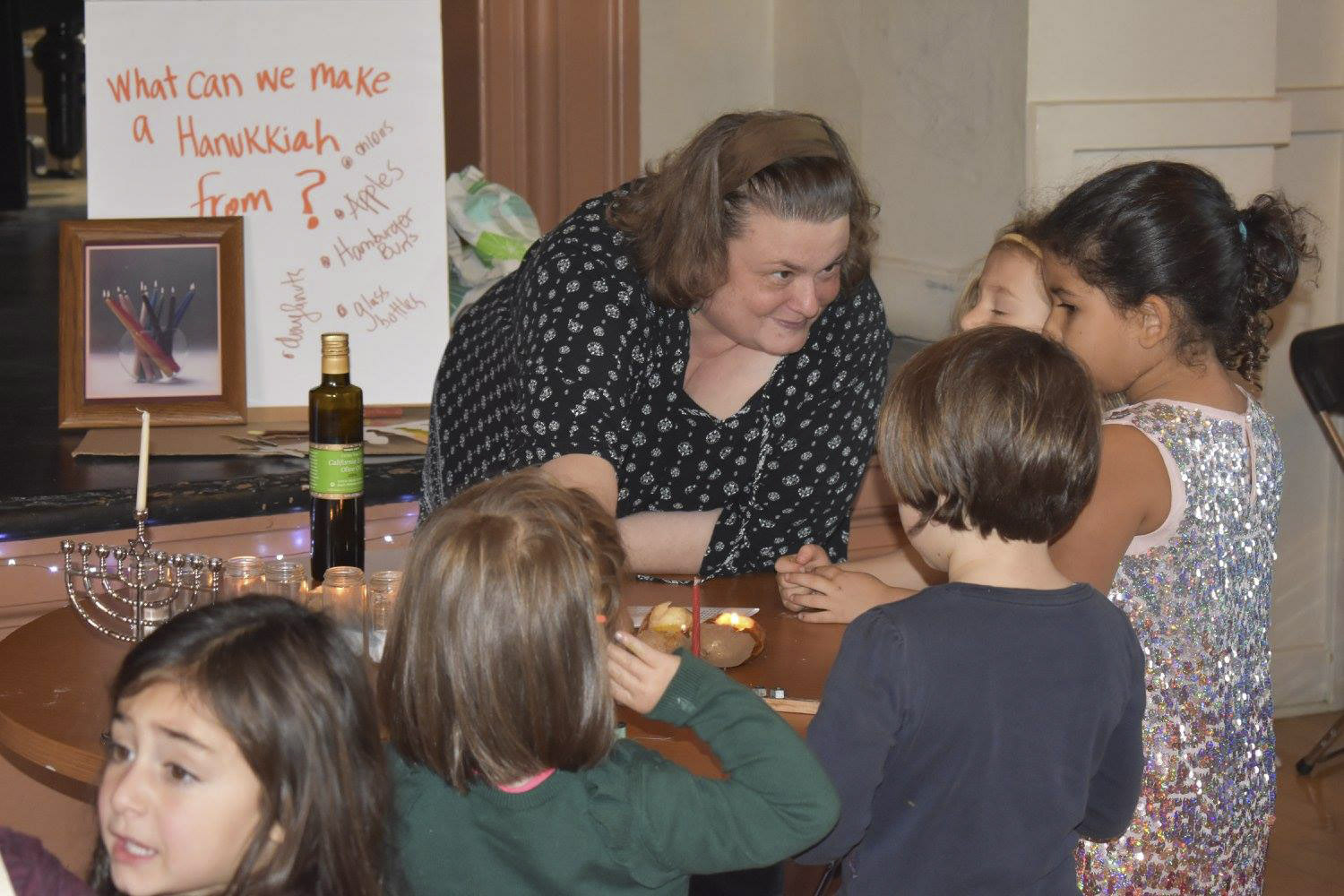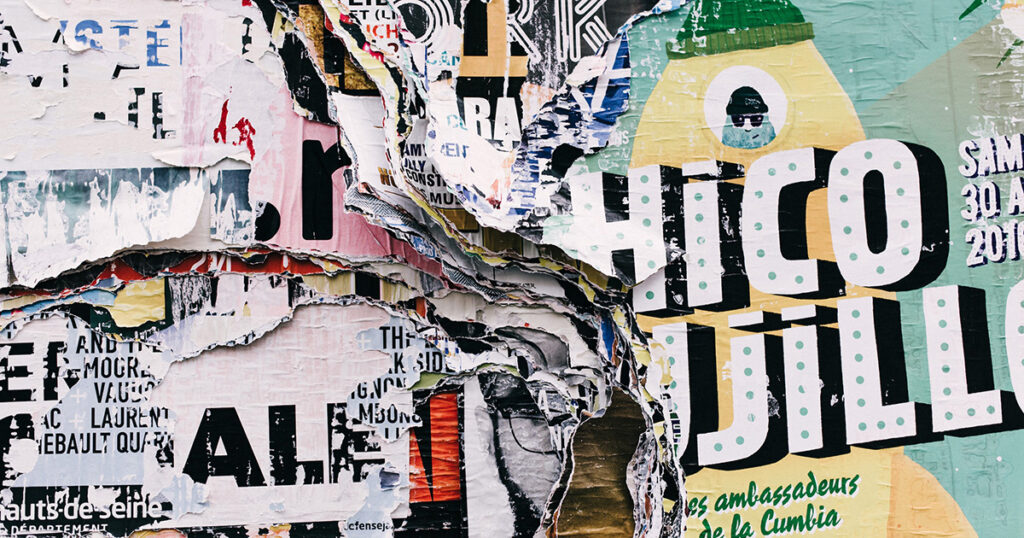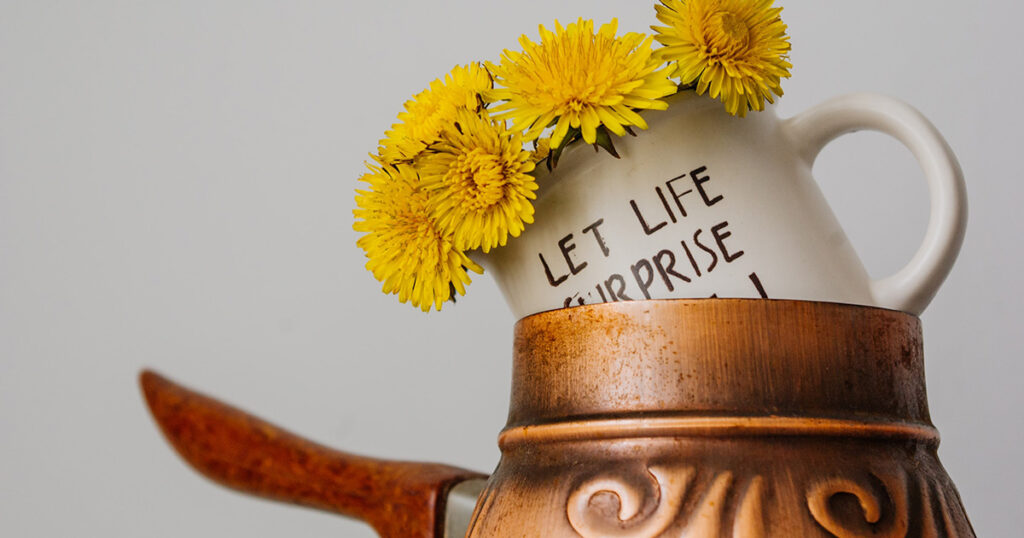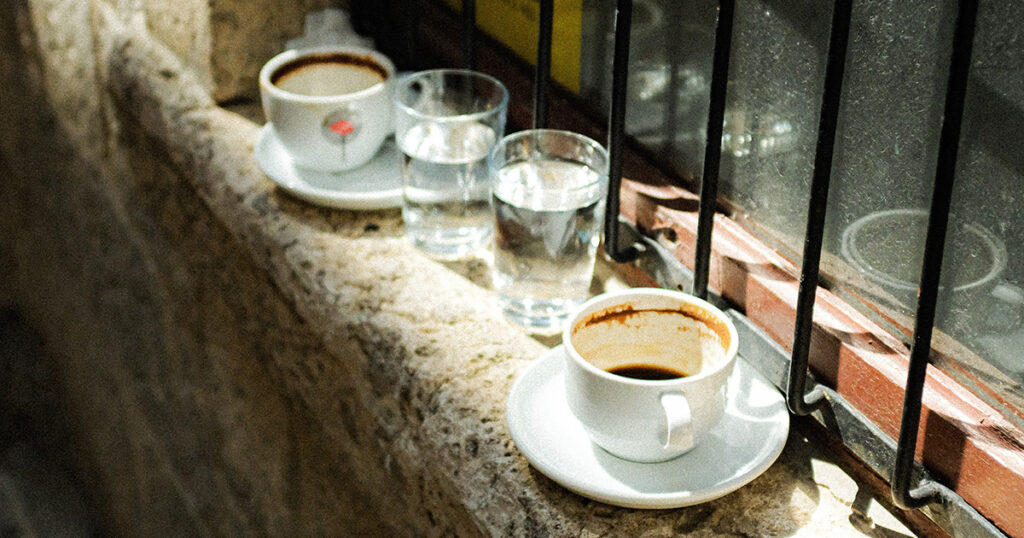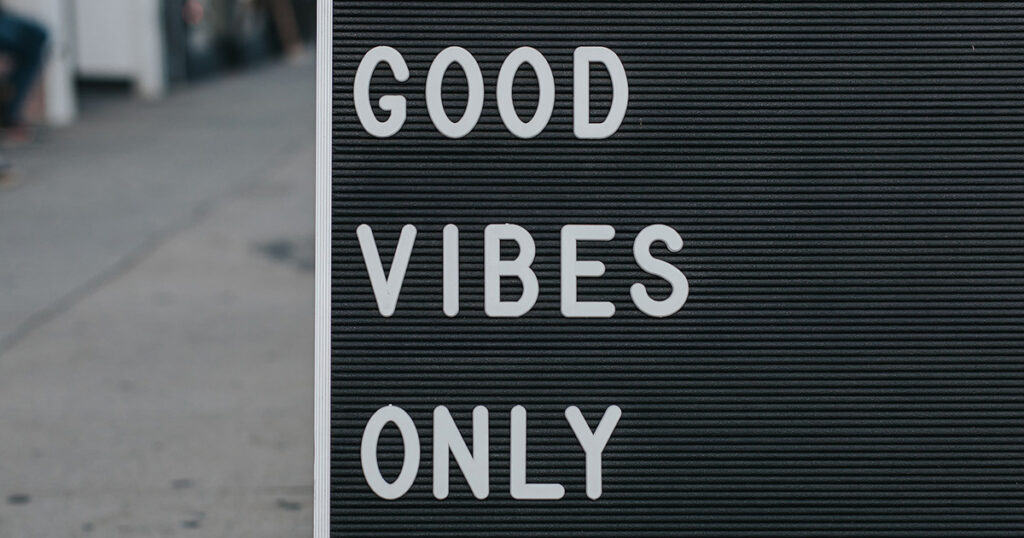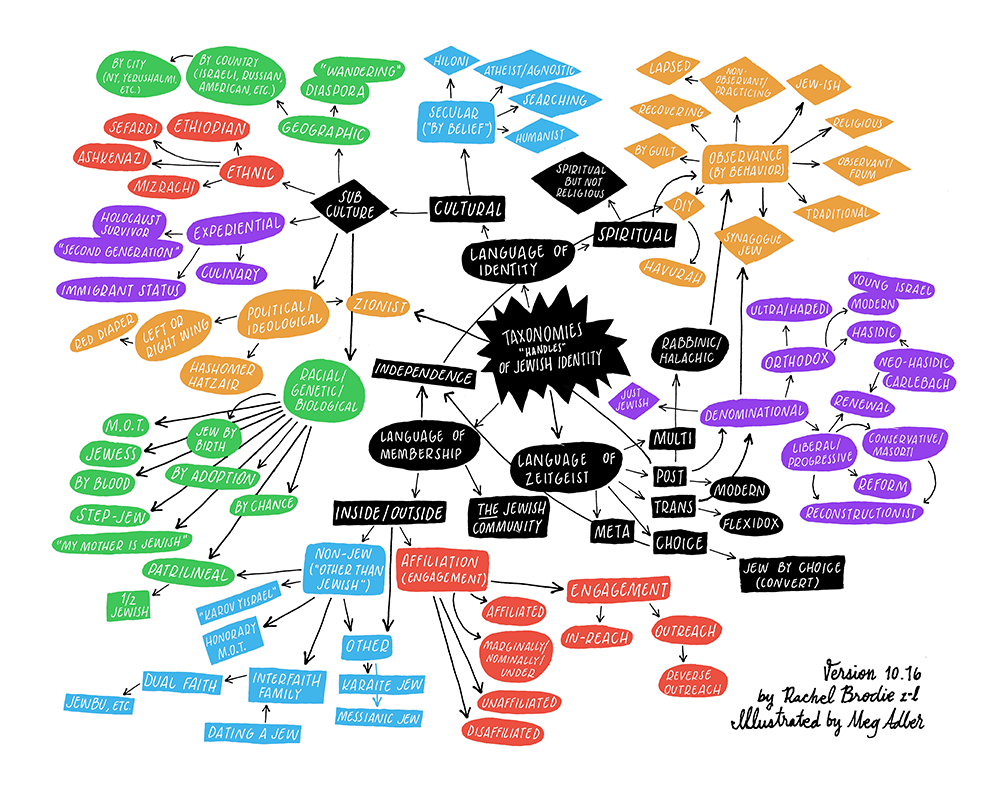

“Whoever repeats a statement in the name of the one who said it brings redemption to the world.” (Avot 6:6)
Jewish tradition contains the imperative that we credit our teachers for their ideas and impact. Rachel was a beloved scholar, teacher, and friend to Jewish educators all over the world, and a former staff member at Jewish LearningWorks. We dedicate our learning to her memory, in the month of her first yahrzeit.
Rachel Touched Thousands in Our Community
The following pieces are a small sample of her Torah, how devoted she was a teacher, and how beloved she still is. May we honor her memory with the light and wisdom of our teaching, and by laughing as much as she did!
On the elevator with Rachel Brodie by Marci Glazer
How does one conjure the image of the consummate adult educator of our generation, Rachel Brodie? I imagine paying homage to the remarkable breadth and depth of her Torah learning, her skillful teaching techniques, and her invitation to everyone to be a teacher. But what really comes to mind is an elevator. She expanded the ranks of Jewish educators one elevator trip at a time (seriously and literally). During her years as Chief Jewish Officer at the JCCSF, Rachel took thousands of these journeys with hundreds of staff members — engaging all of us as learners and educators. In riding the JCC elevator with Rachel, one realized three fundamental truths at the exact same time: First, Nothing is/need be ordinary (Mikadesh Hol מקדש חול) Paraphrasing my teacher, the vast majority of our lives is spent wandering in a desert, Exodus-style, with sand between our toes not knowing exactly where we're going. Accept that Jewish tradition may care more about how you are day-to-day than whether you go to synagogue on Yom Kippur. So every elevator ride with the preschooler stretching to press the 2nd Floor button for the first time or with the newcomer visiting our classrooms or art gallery was a platform to see and bring appreciation to the extraordinary everyday stuff of life. So every staffer was an educator with the potential to affect someone else for the better. Second, Translation matters (Drash דרש) The one rule of learning Torah with Rachel Brodie? Check the translation. Or in the vernacular of a favorite movie, "I do not think (that word) means what you think it means". Rachel opened our eyes to the myriad interpretations packed into our texts. I can hear her exhortations to “Read the Babel story again, What do you notice? What words are repeated? What choices did the translator make and why?”. What story do these texts tell? She was a master translator bridging Hebrew and English, expansive and conventional Jewish worldviews, and of course New York speedtalk to Berkeley casual chat. In that elevator, she asked her nascent educators to pay attention to not only what needed interpretation (e.g. a flyer about Shabbat or a sign), but also to what the person standing with you might need to make meaning. What stories are encoded in our building and in our community? Third, Positive change is possible (Tikkun תקון ) Never one to accept a trite phrase or superficial response, Rachel asked her colleagues to join her in an expansive unpacking of tikkun separately from its constant companion, olam. Using a beautifully illustrated visual diagram of the Hebrew root taf-koph-nun, Rachel spun out the many possibilities for understanding this core Jewish concept. Yes, it could mean repair the world but also adjust or tune over time as in an instrument or person, and also big structural change as in the takanah delegitimizing polygamy. But Rachel’s favorite was l’takein to adorn or beautify as in a bride. How lucky were we to experience how she could make delightful ... ideas, rituals, and the tradition. She invited us to welcome change in its variously lovely forms. In [...]
Letting Jewish life live by David Green
Not everyone is ready to let Jewish life thrive out in the wild. Even among those of us who truly love to spread the joy of people doing Jewish, rabbis, educators, parents, we fret about them doing it wrong. Subtly, and not so subtly we say, “Wait. No. Not like that.” What I learned from my teacher Rachel Brodie, z’l, was how to let Jewish life live. A dynamic force in this civilization has persisted through travails we cannot even imagine, proclaiming a grounded optimism for creation again and again. Judaism may be threatened, but it isn’t fragile. It may be tiny, but it isn’t separate. It is special, but it is not specialized: it is designed for everyday. As teachers, there are good reasons to want to get it right. There is so much to learn. The material is demanding. Our texts wrestle with big ideas and elicit complicated feelings. There are the legacies of exclusion and inaccuracy and prejudice. Most of all, we don’t want to damage what we love; neither our students nor the tradition. Yet, Jewishing is more of a creative process than an exam. Anyone who ever tried to turn a source sheet over too soon knows how precisely Rachel planned her lessons. She also said, “I do not set an agenda regarding next steps,” letting the learning take its own course, “even if I never find out exactly how it plays out” beyond the classroom. Think of the controversy over translation. When Onkelos completed the first translation of the Torah from Hebrew into Aramaic it was received like the Torah at Sinai: a blinding light broke out and people heard a heavenly voice. The translation is printed alongside the Hebrew to this day! But, when Torah was first translated into Greek, the Talmud says, “that day was as ominous for Israel as the day on which the golden calf was made.” Were they so different? No, there are two competing sentiments: access is a good thing, but what people do with it can be frightening. “Wait. No. Not like that." One innovation Rachel brought with Jewish Milestones, helping individuals design their Jewish lives, was dedicating a sefer torah for people to use upon request. To all the Jews in the Bay Area, she said, concretely: we trust you with the Torah. Doing Jewish with Rachel was making connections between a mixed multitude of people, asking the biggest questions, always respecting where they came from. We invented new Jewish experiences. We wove it together with literature and music. Took it to other cultures and mixed it up. Made art about it. It changed us and we changed it. Working under Rachel was learning how to take Jewish experience to people, not expecting them to come to us. I myself had to recognize what an exclusive space I was accustomed to. When I first fell in love with the depth of Jewish thought, I was excited to dive inside. I went to synagogue and I went to school. I made it all the way to Israel and studied at the foot of mount Moriah to hear [...]
What did I learn from Rachel Brodie? What didn’t I learn? by Dr. Peg Sandel
What did I learn from Rachel Brodie? What didn’t I learn? That might be an easier question to answer…but here are just a couple of gems I learned from Rachel. Rachel had a unique and ingenious way of teaching. She was a master of big Jewish ideas. Her uncanny ability to make uncommon connections and find clever ways to see things in a new way were sources of endless delight for me. I was always in awe of Rachel's brilliant creativity. During the 2017-2018 school year, Rachel worked with us at Brandeis Marin to revamp our Jewish Studies curriculum across the school. Where did Rachel turn for inspiration in thinking about how to organize the major concepts, big ideas and essential skills for our Jewish Studies curriculum? The Next Generation Science Standards. Of course. I recall sitting in 10H (my apologies if that reference is unknown to you) and listening to her walk me through the powerpoint presentation she made that meticulously adapted the way science curriculum is scoped and applied it to Jewish content. I wish I could describe it in detail here but suffice it to say it is a brilliant Jewish Studies curricular framework with specific learning benchmarks and affective outcomes, anchored in biblical text and commentary, linked to middot, and integrated with grade level themes. Rachel helped us expand the traditional framework of holidays and chumash to focus on what she called “weekday Judaism” as a way to engage students in meaningful and compelling Jewish learning. It is wide angle Judaism in a day school. Rachel’s creative brilliance also left a lasting mark on how I read and make sense of Jewish texts. I will never read the Book of Jonah the same way again after hearing Rachel describe it as "a trippy fairy tale about a depressive saved from attempted suicide with the support of a really big fish!" I will never think about mourner's kaddish the same way again after hearing Rachel posit that "yehay shmay rabbah mevorach" ("may the ‘big name’ be blessed") can be read as an affirmation that when we remember those we have lost, we add that person’s name to the grand collection of all the names of those who have passed on (“shmay rabbah”). In fact, I will never think about a lot of things the same way after hearing Rachel talk about them. I don't like living in a world without Rachel Brodie but I know for sure that the world is a better place because she was in it. Her memory is a blessing and may it always be. Dr. Peg Sandel is the proud head of school at Brandeis Marin, a K-8 Jewish day school located in San Rafael. Other Pieces Remembering Rachel Brodie z”l
What I learned from Rachel Brodie by Jhos Singer
It is not so much what I learned from Rachel Brodie that is noteworthy, but how I continually learned from her. Many years ago, my beloved spouse, the lovely Julie Batz, called me into our office to watch a YouTube video of her Hollywood heartthrob, Patrick Stewart doing a brief “Master Class” on the comedic device he calls the quadruple take. He reviews the single take, in which an actor turns their head very deliberately towards an object or person who is calling their attention. The effect may be to convey humorous disbelief or incredulity. The double take has the actor slightly inclining their head, returning to neutral, and then making a full turn to the source of their interest. This intensifies the effect. Similarly with the triple take but as I’m sure you have surmised, this time the actor turns their head in three incrementally larger arcs until finally focusing on the object. And then there is the quadruple take. This is a totally different move. Here the actor basically winds their head around in 4 circles before landing on the perplexing object. The quadruple take is pure slapstick, an exaggerated, cartoon-like reaction to something so outlandish that it literally sends one’s head spinning. And that is usually how I learned from Brodie—first take, second take, third take, and fourth take. Her subtle genius—first take. Her provocative assertions—double take. Her rapid-fire wit/wisdom/wit/wisdom teaching style—triple take. And her out of the box deconstructed Torah put back together in a whole new way—quadruple take. The first time I met Brodie was as her reluctant and cynical student. I had been told all about what a genius she was, what a fantastic teacher, how incredibly she gave over Torah, and how I was going to love her. I can say with some surety that the most reliable way to pit a strong-willed, talented, and ever-so-slightly insecure person against someone else is to say “So-and-so is SOOOO AMAZING, you are going to love them!!” I was certain that this Rachel Brodie was, at the very least, overrated, if not a downright fraud. “You have to come hear Rachel Brodie teach next week!” I was commanded. I wanted to get it over with, so I said, “OK, what is she teaching on?” “Women in the Torah!” I had studied with every Feminist Torah scholar the Bay Area had to offer and I was over it. “Perfect!” I chortled, certain that this would be a “one and done” and the end of Rachel Brodie for me. Of course, you know what happened. I went and spent the entire night single, double, and triple taking. She was brilliant. She was masterful. She was hilarious. She was in total command. She made me cry. She was the most generous teacher I had ever learned with. Somehow, she managed to fill every nook and cranny of the room with her energy one minute, and the next she was tsim-tsuming, creating sacred space for the questions and insights of the learners. She learned from every person in the room without pandering or patronizing. She listened deeply, carefully, thoughtfully. I [...]
Then I met Rachel by Vicky Kelman
I met and fell in love with Rachel Brodie over coffee in a café in Jerusalem. I had coffee with Rachel because my Jerusalem cousin, Nancy, said she knew a young couple, Adam Weisberg and Rachel Brodie, spending the year in Jerusalem, who were about to move to Berkeley. (Nancy’s husband, Benny, was a first- cousin of Rachel’s mother, Deborah Brodie, z”l.) Rachel would be looking for a job. I made the date with Rachel mostly out of family loyalty. I didn’t have budget or plans to add a staff member but I thought I might have helpful hints about their new community. Then I met Rachel. I rearranged my budget and hired her before I left Jerusalem. For the next 10 years we were more or less joined at the hip professionally and personally. We were core staff of The Jewish Family Education Project at the Bureau of Jewish Education (now known as Jewish Learning Works) which served all of Northern California’s Jewish preschools, synagogue schools, day schools, JCCs and more. In those days the BJE was a hub of about 30 staff and an ever-growing menu of projects. We carpooled and we shared Shabbat meals. We celebrated the purchase of their home and the births of Sophia and Ariella. It’s hard to recall post-Covid, the collective human energy generated by juggling a 3-year fellowship of a dozen full-time Family Educators, a Jewish Great Books Seminar, a workshop focused on reading YA literature as a pathway to reaching adolescents, a family history curriculum for 6th graders, an Israel leadership program, and an annual bay area-wide 30 event month-long “Feast of Jewish Learning”. And doing it all in person. Our corner of the BJE (Bureau of Jewish Education, now Jewish LearningWorks) was always pulsating with educators and their energy and their creativity. Rachel’s laugh could always be heard ringing out above the hubbub. She stood for excellence and commitment. We had been advised that educators would never come to anything longer than 90 minutes. We made every workshop and gathering 3 hours. At Rachel’s insistence we gave assignments (whole books to read) and homework. In our world, Family Education went far beyond (and eventually jettisoned) challah covers and tzedakah boxes. It was ‘big Jewish ideas” packaged for kids, parents and teachers and new packages in which to deliver them. Anyone remember “Café Dilemma?” F.I.B.? She rocked text teaching. She inspired and grew and laughed all the way. You couldn’t learn to teach like her but you could be inspired and nourished by her teaching. Rachel was one of a kind. She pushed boundaries and refused to be defined. She is one of the only great Jewish educators I’ve ever met who was 100% “not-a-camp-person.” We sometimes disagreed on the proper balance of education, entertainment and edutainment, but we loved each other. Her work at a hub like the BJE gave her incredible exposure and soon enough she needed a bigger world. The Jewish Family Education Project was too confining for her. She flew the nest and the rest is history. In recent years we didn’t see each other much but [...]
Just don’t make us go to Santa Cruz by Amy Kassiola
Rachel and I arrived in the Bay Area from the East Coast at the same time and we worked closely together for a couple of years as Jewish educators at the Peninsula JCC. We shared a birthday and became dear friends. Here is my poem from 1998 that evokes Rachel’s sense of humor. Little Rachel Brodie of Manhattan, Nu Yawk Knew every bracha before she could tawk. And Amy studied how to paint Inhaling turpentine until she was faint. So how in the world did we come to be Wrangling for Jews at the PJCC? Teaching God knows what to God knows who And God knows why it’s what we do. From translating Amichai, ain't it absurd To find for “Kwanzaa” a rhyming word? From handling “The Suite” and talks about Zora To light the lulav and shake the menorah? It’s no kosher picnic, let me warn ‘ya To be sluts for Torah in Northern California. The Jews here are a funny lot. Instead of salmon, they’re smoking pot. It’s harder to locate a decent challah, Than to find a class about Kabballah. Nostalgia for “olden ways” is often the norm, But here, “olden ways” means classic Reform. This Torah reader with a beautiful voice? Surprise, she’s a Japanese Jew-by-choice! That aging hippie, feelin’ groovy? Who would take him for a ba’al teshuvee? It’s hard here to know what’s real from what’s myth. But as sluts we must teach the ones we are with. This means San Francisco Bay Area Jews. (Just don’t make us go to Santa Cruz). Amy Kassiola is a Jewish Educator who has taught in Family School programs and leads workshops on cultural traditions at synagogues and JCC’s throughout the Bay Area. She is also a professional artist whose work has been exhibited locally and on the East coast. Other Pieces Remembering Rachel Brodie z”l
In the Summer of 2021 by Natalie Boskin
In the summer of 2021, I reached out to Rachel on a whim because I wanted her perspective on what could only be described as seven pages of word vomit. I had finished translating the Akedah and the process of paying close and loving attention to each word of such a powerful story had my mind whirling. I needed help identifying if there were kernels of anything worthwhile in all of it, help figuring out where to start. I'd come to respect and care for Rachel deeply after years of being both her student, and side-by-side with her in the classroom and art studio. Studying with her left me feeling sharp, empowered, and exhausted in the best way. She was passionate about Torah in the ways I was, namely we get loud and talk fast. Which is why, as I was considering who to call to help me sort through my mess of ideas, Rachel popped into my mind. And I have to tell y'all, it was Divine that she did because this will be the only piece of my writing that Rachel will have ever read. She spent a few hours on the phone with me talking through my thousands of ideas and helped me figure out what drash was bubbling up in that particular moment. In fact, it was Rachel's idea to turn the brain dump into multiple drashot- a proposal that has helped me come to understand why the commandment to read Torah year after year is so important to me. To say I feel honored to have gotten to think with her about this drash does not begin to capture what I feel in my body. I cannot express how deeply Rachel has inspired me or how much I feel I owe to her beloved memory. She was one of the most incredible teachers I've ever had and my teaching will be forever shaped by what I've learned from her about Torah, pedagogy, and what it means to show up in the fullness of oneself. I dedicate this drash to her memory, which I gave on Shabbat Vayera 5782 at Kehilla Synagogue. If you want to join this conversation I had with her, please feel free to add comments to the doc — I'm still crafting drashot about the Akedah and am continuously inspired by new perspectives and commentary on this sacred story. May her memory be for a blessing. I miss her dearly. Natalie Boskin, she/her/hers is the Assistant Director of Youth Programs at Kehillah Community Synagogue in Oakland, California. Other Pieces Remembering Rachel Brodie z"l
Her Contributions and Influence
Rachel Brodie’s body of work as an author, visionary and teacher is ample, diverse and profound. Her seminal pieces are largely offline, exactly as she wanted them. The following pieces continue to influence thousands in our community.
Donate in Memory of Rachel Brodie
Your contribution will help us continue to support the educators and professionals who inspire lifelong Jewish learning.
